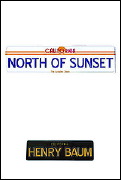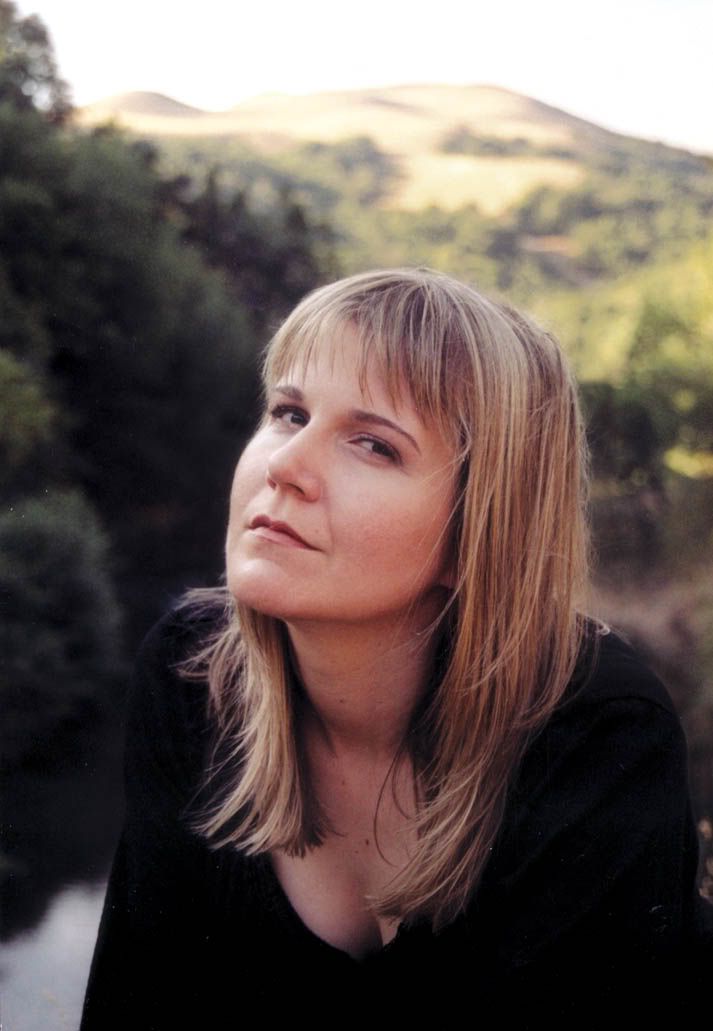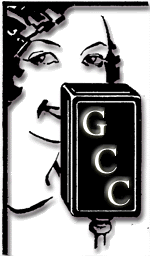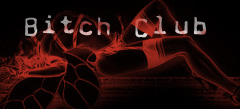North of Sunset, West of the Mood
Back eons ago, when I was doing my signing in LA, a man I didn't know came up to me in order to get his book signed. "Hello," he said, "I'm Henry."
I broke into hysterical laughter. "No way! The Henry Baum?"
It was the one and only. I was gobsmacked.
I can't even remember how I met Henry Baum, but I know it was on the Internet somewhere. Perhaps our blogs somehow got linked and we found each other that way. Henry's blog, Ash Tree, is an addictive read. His work has been published with Soft Skull Press and elsewhere. Henry, writing as Shirley Shave, an alleged female sex worker, has also had work appeared in Best American Sex Writing 2005. The Shirley Shave blog stirred up its own kind of controversy awhile back. You can read about it here.
Now, Henry has a new book out, North of Sunset.

I caught up with Henry and asked him a few questions.

Henry Baum was born in New York City and grew up in Los Angeles. He is the author of the novel Oscar Caliber Gun, retitled The Golden Calf in other editions. Currently, he lives and writes in L.A.
HB: This is the first and only time that I’ve woken from a dream and started writing something. Actually, let me backtrack. I had the basic idea for the plot of the novel: a serial killer who goes after people with Vanity Plates and a celebrity who starts killing people using the serial killer’s M.O. as a scapegoat. Cut to a couple years later. I was living in Paris and dreamt a scene about road rage on the L.A. freeway. A very vivid dream, complete with dialogue. I woke up and wrote the entire scene down and didn’t stop until I had the entire story for the novel laid out. I can’t say I’ve ever had that experience since then. At the time, I was holed up with gout and I was taking two kinds of French painkillers that you can’t even get in the States. Might have had something to do with the vividness of the dream.
MO'C: Is Michael at all like you? How and why?
HB: I’m a fairly self-conscious person. I tend to look at myself the way I look at my writing: always revising, always for looking ways I could and should do better. I couldn’t imagine what it would be like to be a movie star and have every single person eyeing you and whispering about you when you leave the house. It’s really my nightmare, and a complete exaggeration of how I live my life. Michael Sennet is not exactly predisposed to that kind of scrutiny, like myself, and he kind of loses his mind over it.
MO'C:Your book takes an edgy approach to Hollywood life. How have your background and your location in LA helped you explore the characters?
HB: Here’s the story: I was born in New York City. My dad was a novelist and my mom worked in publishing. They moved us out to L.A. and my dad became a screenwriter and my mom became a producer. I grew up with nightly dinner table conversations about the industry. I went to high school with the children of celebrities: Cher, Jack Nicholson, Jackson Browne, directors, producers, and on. It’s part of me, as much as I’ve tried to excise it from myself. Hating Hollywood is in some way like hating myself, which isn’t exactly healthy. Instead, I’ve tried to study the place and come to terms with it in fiction.
MO'C:You chose to go the POD route instead of traditional publishing, yet you have been traditionally published in the past. Why the switch? Also, can you describe some pros and cons to this, and introduce the blog readers to the process of POD? How do you promote a POD book and get it distributed?
HB: You’re looking at the way to promote it. I’ve sent the book to a lot of lit blogs and review sites trying to promote the book. I’ve had some great responses so far. Because I’ve published a novel traditionally, it has been easier to get people’s attention for the book. Distribution is the main problem. There’s no good way to distribute the book to bookstores, short of walking into a bookstore and selling it directly. The main way for people to buy the book is online. It’s hard when people can’t read a few pages, so I’ve gotten excerpts posted online as well.
I have to say that POD was a last resort. I had an agent who sent the book to 20 places and he was done. I sent it to a few more small presses myself. No luck. I was reluctant to self-publish the book. I had pre-conceptions about self-publishing like anybody. It’s been a very good experience. Just having a book in my hands is a shot in the arm, so I recommend it for that alone. I’m getting interviewed, getting reviewed, getting read. Not on a huge scale, but much larger than if it was a manuscript gathering dust in a desk drawer.
MO'C: Do you have any advice for aspiring authors?
HB: My advice is to not worry about getting published. Write something, send it out, then write something else before waiting for a response. My other advice is to not judge yourself on your first draft. I’ve found a lot of times that new writers quit something if it’s not a work of genius right away. It’s like picking up a guitar and expecting to be able to play immediately. People think writing should come naturally and immediately because they’ve been writing since they were kids. A piece of fiction, or any writing, needs to be refined. Writing is about being hard on yourself, which isn’t the easiest road to go down. You have to be self-critical or nothing’s going to get better. Raymond Carver wrote 40 drafts of a story. His first drafts might not have been that readable either.
MO'C: What's your writing day like? Any tips or tricks for getting organized?
HB: My writing day used to be a bit more uniform. I’d work quickest after my first cup of coffee, for about 4 hours. It was heartening to me to read that Truman Capote only wrote 4 hours or so a day. He had all the time in the world to write, but he was only strongest for 4 hours.
Since I’ve gotten married and have a daughter, my writing schedule sort of fits around family life. Sometimes I write at night. Sometimes I write in the morning. I’ve got a paying job to do so that fits in there as well. I guess the answer is: whenever I can. A trick for getting organized is to throw out your TV and internet service. I just can’t follow my own advice.
MO'C: What's been the most exciting thing about publishing? The most frustrating?
HB: The most frustrating thing is not getting published. North of Sunset is my fifth novel, but only the second published, and I put it out myself. I’m a better writer than that record suggests. In the past, I might have been taken on by a publisher as a writer with promise. These days it’s about marketing and if one book doesn’t sell you’re done. Which doesn’t make an ounce of sense. Anything takes time to mature, and writers should be given the chance. Look at a book like Big As Life by E.L. Doctorow. Not his best and in this climate he might have never gotten another book published.
MO'C: Do you think you might write a sequel to this novel? If not, what else is in the works?
HB: I think I’m done with Hollywood for the time being. I think I’ve purged it from my system. I’ve been writing short stories lately. I’ve done things backwards: I wrote novels first and then started writing stories. Most writers do the opposite. I never thought I was restrained enough to be that concise. I’d get attached to characters and not want to leave them after ten pages. Now I want to write stories.
I’ve also got a couple of ideas for novels. I’m not sure I want to spend a year or more on a book only to see the thing not get published. My publishing history has made me skeptical about getting the types of books I write published. I’ve put a lot of work into releasing my book myself, but I’d really like to not do that every time out. I’d much rather spend the relatively short time it takes to write a short story, send it out, and get immediate feedback. Readers have been positive. It’s the editors and agents who haven’t been so helpful. Putting out stories is also a way to get people interested in the novel.
Thank you for joining us, Henry! You can buy Henry's book at Lulu, Amazon, and Barnes and Noble; or ask for it at your local independent bookseller.
I broke into hysterical laughter. "No way! The Henry Baum?"
It was the one and only. I was gobsmacked.
I can't even remember how I met Henry Baum, but I know it was on the Internet somewhere. Perhaps our blogs somehow got linked and we found each other that way. Henry's blog, Ash Tree, is an addictive read. His work has been published with Soft Skull Press and elsewhere. Henry, writing as Shirley Shave, an alleged female sex worker, has also had work appeared in Best American Sex Writing 2005. The Shirley Shave blog stirred up its own kind of controversy awhile back. You can read about it here.
Now, Henry has a new book out, North of Sunset.

I caught up with Henry and asked him a few questions.
THE AUTHOR

THE BOOK
If there’s an everyman, then Michael Sennet is every celebrity. Michael Sennet is a movie star. He should be happy, but he’s bored. What does he do after he’s achieved the best of everything: the best women, the best cars, the best homes, the best drugs? He doesn’t have an answer. Meanwhile, the Vanity Plate Killer is roaming the streets of Los Angeles looking for new victims and dreaming of fame of his own. When Michael Sennet uses the M.O. of the Vanity Plate Killer, they find something that eclipses any starring role.THE INTERVIEW
MO'C: How did you get this idea for this book? Please describe how the book grew from a glimmer of an idea into a whole novel.HB: This is the first and only time that I’ve woken from a dream and started writing something. Actually, let me backtrack. I had the basic idea for the plot of the novel: a serial killer who goes after people with Vanity Plates and a celebrity who starts killing people using the serial killer’s M.O. as a scapegoat. Cut to a couple years later. I was living in Paris and dreamt a scene about road rage on the L.A. freeway. A very vivid dream, complete with dialogue. I woke up and wrote the entire scene down and didn’t stop until I had the entire story for the novel laid out. I can’t say I’ve ever had that experience since then. At the time, I was holed up with gout and I was taking two kinds of French painkillers that you can’t even get in the States. Might have had something to do with the vividness of the dream.
MO'C: Is Michael at all like you? How and why?
HB: I’m a fairly self-conscious person. I tend to look at myself the way I look at my writing: always revising, always for looking ways I could and should do better. I couldn’t imagine what it would be like to be a movie star and have every single person eyeing you and whispering about you when you leave the house. It’s really my nightmare, and a complete exaggeration of how I live my life. Michael Sennet is not exactly predisposed to that kind of scrutiny, like myself, and he kind of loses his mind over it.
MO'C:Your book takes an edgy approach to Hollywood life. How have your background and your location in LA helped you explore the characters?
HB: Here’s the story: I was born in New York City. My dad was a novelist and my mom worked in publishing. They moved us out to L.A. and my dad became a screenwriter and my mom became a producer. I grew up with nightly dinner table conversations about the industry. I went to high school with the children of celebrities: Cher, Jack Nicholson, Jackson Browne, directors, producers, and on. It’s part of me, as much as I’ve tried to excise it from myself. Hating Hollywood is in some way like hating myself, which isn’t exactly healthy. Instead, I’ve tried to study the place and come to terms with it in fiction.
MO'C:You chose to go the POD route instead of traditional publishing, yet you have been traditionally published in the past. Why the switch? Also, can you describe some pros and cons to this, and introduce the blog readers to the process of POD? How do you promote a POD book and get it distributed?
HB: You’re looking at the way to promote it. I’ve sent the book to a lot of lit blogs and review sites trying to promote the book. I’ve had some great responses so far. Because I’ve published a novel traditionally, it has been easier to get people’s attention for the book. Distribution is the main problem. There’s no good way to distribute the book to bookstores, short of walking into a bookstore and selling it directly. The main way for people to buy the book is online. It’s hard when people can’t read a few pages, so I’ve gotten excerpts posted online as well.
I have to say that POD was a last resort. I had an agent who sent the book to 20 places and he was done. I sent it to a few more small presses myself. No luck. I was reluctant to self-publish the book. I had pre-conceptions about self-publishing like anybody. It’s been a very good experience. Just having a book in my hands is a shot in the arm, so I recommend it for that alone. I’m getting interviewed, getting reviewed, getting read. Not on a huge scale, but much larger than if it was a manuscript gathering dust in a desk drawer.
MO'C: Do you have any advice for aspiring authors?
HB: My advice is to not worry about getting published. Write something, send it out, then write something else before waiting for a response. My other advice is to not judge yourself on your first draft. I’ve found a lot of times that new writers quit something if it’s not a work of genius right away. It’s like picking up a guitar and expecting to be able to play immediately. People think writing should come naturally and immediately because they’ve been writing since they were kids. A piece of fiction, or any writing, needs to be refined. Writing is about being hard on yourself, which isn’t the easiest road to go down. You have to be self-critical or nothing’s going to get better. Raymond Carver wrote 40 drafts of a story. His first drafts might not have been that readable either.
MO'C: What's your writing day like? Any tips or tricks for getting organized?
HB: My writing day used to be a bit more uniform. I’d work quickest after my first cup of coffee, for about 4 hours. It was heartening to me to read that Truman Capote only wrote 4 hours or so a day. He had all the time in the world to write, but he was only strongest for 4 hours.
Since I’ve gotten married and have a daughter, my writing schedule sort of fits around family life. Sometimes I write at night. Sometimes I write in the morning. I’ve got a paying job to do so that fits in there as well. I guess the answer is: whenever I can. A trick for getting organized is to throw out your TV and internet service. I just can’t follow my own advice.
MO'C: What's been the most exciting thing about publishing? The most frustrating?
HB: The most frustrating thing is not getting published. North of Sunset is my fifth novel, but only the second published, and I put it out myself. I’m a better writer than that record suggests. In the past, I might have been taken on by a publisher as a writer with promise. These days it’s about marketing and if one book doesn’t sell you’re done. Which doesn’t make an ounce of sense. Anything takes time to mature, and writers should be given the chance. Look at a book like Big As Life by E.L. Doctorow. Not his best and in this climate he might have never gotten another book published.
MO'C: Do you think you might write a sequel to this novel? If not, what else is in the works?
HB: I think I’m done with Hollywood for the time being. I think I’ve purged it from my system. I’ve been writing short stories lately. I’ve done things backwards: I wrote novels first and then started writing stories. Most writers do the opposite. I never thought I was restrained enough to be that concise. I’d get attached to characters and not want to leave them after ten pages. Now I want to write stories.
I’ve also got a couple of ideas for novels. I’m not sure I want to spend a year or more on a book only to see the thing not get published. My publishing history has made me skeptical about getting the types of books I write published. I’ve put a lot of work into releasing my book myself, but I’d really like to not do that every time out. I’d much rather spend the relatively short time it takes to write a short story, send it out, and get immediate feedback. Readers have been positive. It’s the editors and agents who haven’t been so helpful. Putting out stories is also a way to get people interested in the novel.
Thank you for joining us, Henry! You can buy Henry's book at Lulu, Amazon, and Barnes and Noble; or ask for it at your local independent bookseller.








<< Home